I love to read. By God’s grace I am a pretty fast reader; I usually read a couple books each week. I find it helpful to summarize my thoughts on each book and I offer those thoughts in the hope that you will be encouraged to either read or pass over the given title.
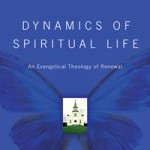 Dynamics of Spiritual Life: An Evangelical Theology of Renewal by Richard Lovelace. For years I’ve heard pastors I deeply respect recommend Lovelace’s classic book on spirituality. Tim Keller once said, “Anyone who knows my ministry and reads this book will say, ‘So that’s where Keller got all this stuff!’” After reading it, I totally agree. Many tenets of TGC spirituality we’ve come to know (gospel-centrality, the dangers of moralism, social and urban activism, among others) Lovelace articulated back in the late 1970s. While I think Lovelace is too kind to Pentecostal expressions of piety, Dynamics of Spiritual Life is, one the whole, utterly compelling. Few stones of spirituality are left unturned in this near 400-page work. The work’s unique values is the fact that it comes from the pen of a trained historian. Lovelace’s biblical and systematic theology is – in a good way! – nothing revolutionary, but he weds those disciplines to historical perspectives on revival and renewal I often found captivating. You probably won’t agree with every jot and tittle of Lovelace’s vision for renewal, but Dyanamics will nonetheless stir you to dream about biblical revival in your local church. So buy it, read it, and dream away.
Dynamics of Spiritual Life: An Evangelical Theology of Renewal by Richard Lovelace. For years I’ve heard pastors I deeply respect recommend Lovelace’s classic book on spirituality. Tim Keller once said, “Anyone who knows my ministry and reads this book will say, ‘So that’s where Keller got all this stuff!’” After reading it, I totally agree. Many tenets of TGC spirituality we’ve come to know (gospel-centrality, the dangers of moralism, social and urban activism, among others) Lovelace articulated back in the late 1970s. While I think Lovelace is too kind to Pentecostal expressions of piety, Dynamics of Spiritual Life is, one the whole, utterly compelling. Few stones of spirituality are left unturned in this near 400-page work. The work’s unique values is the fact that it comes from the pen of a trained historian. Lovelace’s biblical and systematic theology is – in a good way! – nothing revolutionary, but he weds those disciplines to historical perspectives on revival and renewal I often found captivating. You probably won’t agree with every jot and tittle of Lovelace’s vision for renewal, but Dyanamics will nonetheless stir you to dream about biblical revival in your local church. So buy it, read it, and dream away.
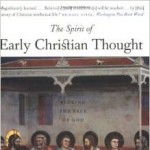 The Spirit of Early Christian Thought: Seeking the Face of God by Robert Louis Wilken. Wilken, Professor of Historical Theology and Patristic Studies at Creighton University, aims to uncover – recover might be the better word – the spirituality of the Church Fathers in The Spirit of Early Christian Thought. He says the intellectual work of the Fathers was “at the service of a much loftier goal than giving conceptual form to Christian belief. Its mission was to win the hearts and minds of men and women and to change their lives.” Focusing primarily on Origen, Gregory of Nissa, Augustine, and Maximus the Confession displays how these theological giants of old were preeminently “spiritual giants.” There is much food for thought in this book, but some of it is overshadowed by some of Wilken’s conclusions, which come from his worldview as a former Lutheran who converted to Roman Catholicism. While one can quibble with his interpretations, one cannot but sing the praise of the man’s prose. Wilken wields a mastery of language that at times left me speechless in its grandeur.
The Spirit of Early Christian Thought: Seeking the Face of God by Robert Louis Wilken. Wilken, Professor of Historical Theology and Patristic Studies at Creighton University, aims to uncover – recover might be the better word – the spirituality of the Church Fathers in The Spirit of Early Christian Thought. He says the intellectual work of the Fathers was “at the service of a much loftier goal than giving conceptual form to Christian belief. Its mission was to win the hearts and minds of men and women and to change their lives.” Focusing primarily on Origen, Gregory of Nissa, Augustine, and Maximus the Confession displays how these theological giants of old were preeminently “spiritual giants.” There is much food for thought in this book, but some of it is overshadowed by some of Wilken’s conclusions, which come from his worldview as a former Lutheran who converted to Roman Catholicism. While one can quibble with his interpretations, one cannot but sing the praise of the man’s prose. Wilken wields a mastery of language that at times left me speechless in its grandeur.
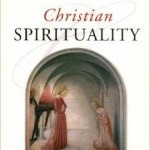 Christian Spirituality: An Introduction by Alistair McGrath. “Textbook” is the right word for McGrath’s introduction to the history of Christian spirituality. Filled with charts, pictures, and various visual aids, Christian Spirituality deals with the types of piety that “ultimately flow from the life, death, and resurrection of Jesus Christ.” McGrath’s approach is broad and thus includes Roman Catholic and Eastern Orthodox traditions of spirituality. Although I’ve still yet to read a textbook-ish introduction to biblical spirituality, McGrath’s volume is as fine an entry into Christian spirituality as you can read.
Christian Spirituality: An Introduction by Alistair McGrath. “Textbook” is the right word for McGrath’s introduction to the history of Christian spirituality. Filled with charts, pictures, and various visual aids, Christian Spirituality deals with the types of piety that “ultimately flow from the life, death, and resurrection of Jesus Christ.” McGrath’s approach is broad and thus includes Roman Catholic and Eastern Orthodox traditions of spirituality. Although I’ve still yet to read a textbook-ish introduction to biblical spirituality, McGrath’s volume is as fine an entry into Christian spirituality as you can read.
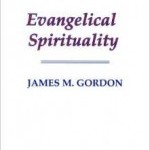 Evangelical Spirituality by James Gordon. When I saw the Table of Contents of this book I thought, “This is going to be a delightful read!” Chapters on giants of godliness like Edwards, Newton, M’Cheyne, Spurgeon, and Lloyd-Jones, alongside those focused on the lesser known Cowper, More, Dale, and Whyte looked magnificent. Well, let’s just say I was a wee bit disappointed. Gordon assumes too much from his readers; if your familiarity with an individual is only in name the author does little to help you gain additional familiarity. Evangelical Spirituality suffers greatly from a lack of cohesion, as many of the chapters read like a collection of quotes from primary and secondary sources with little care to coherent unity and transition. If you are in the academic pursuit of evangelical spirituality, this is a book to have on the shelf. If not, just move along.
Evangelical Spirituality by James Gordon. When I saw the Table of Contents of this book I thought, “This is going to be a delightful read!” Chapters on giants of godliness like Edwards, Newton, M’Cheyne, Spurgeon, and Lloyd-Jones, alongside those focused on the lesser known Cowper, More, Dale, and Whyte looked magnificent. Well, let’s just say I was a wee bit disappointed. Gordon assumes too much from his readers; if your familiarity with an individual is only in name the author does little to help you gain additional familiarity. Evangelical Spirituality suffers greatly from a lack of cohesion, as many of the chapters read like a collection of quotes from primary and secondary sources with little care to coherent unity and transition. If you are in the academic pursuit of evangelical spirituality, this is a book to have on the shelf. If not, just move along.
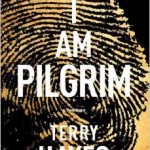 I Am Pilgrim by Terry Hayes. The cover of I Am Pilgrim proclaims, “The only thriller you will need to read this year.” I am something of a sucker for espionage thrillers, let alone ones with superlative reviews to such an extent that one major online magazine calls it “the best book of 2014 . . . so far.” So I jumped in with moderately high expectations. The plot is quite simple: the greatest living US intelligence agent, “Pilgrim”, is sent to find “the Saracen”, the most terrifying terrorist to ever threaten our country. Yet, the simplicity belies a rather complex thriller. An investigation into a shocking NY murder gets your attention and Hayes never really lets it go until the final page. The tale does wander at brief points, most usually when it focuses on the Saracen’s movements, but Hayes’ debut novel is a thrilling triumph.
I Am Pilgrim by Terry Hayes. The cover of I Am Pilgrim proclaims, “The only thriller you will need to read this year.” I am something of a sucker for espionage thrillers, let alone ones with superlative reviews to such an extent that one major online magazine calls it “the best book of 2014 . . . so far.” So I jumped in with moderately high expectations. The plot is quite simple: the greatest living US intelligence agent, “Pilgrim”, is sent to find “the Saracen”, the most terrifying terrorist to ever threaten our country. Yet, the simplicity belies a rather complex thriller. An investigation into a shocking NY murder gets your attention and Hayes never really lets it go until the final page. The tale does wander at brief points, most usually when it focuses on the Saracen’s movements, but Hayes’ debut novel is a thrilling triumph.
Click here to find other entries in the Recent Reads series.
